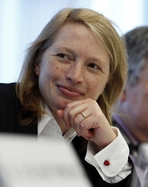European Russophobia and Europe’s Rejection of Peace: A Two-Century Failure
Europe has repeatedly rejected peace with Russia at moments when a negotiated settlement was available, and those rejections have proven profoundly self-defeating. Read more
 Fiona Harvey
Fiona Harvey
2015 is shaping up to be a pivotal year with respect to climate change as growing concern about impacts converges with a critical stage in the decades-long process of shaping an international agreement to change our trajectory. To help us all prepare for the potentially game-changing 21st gathering of the Conference of the Parties to the United Nations Framework Convention on Climate Change (COP 21) in Paris beginning Nov. 30, Ensia is publishing a series of context pieces from longtime observer and reporter Fiona Harvey. This first installment answers some basic questions about the U.N. talks.
Climate change negotiations seem to crawl along interminably at the pace of the glaciers they are meant to protect, with little perceptible progress as meeting follows meeting and conference follows lackluster conference. But this year we are seeing remarkable momentum building toward a historic conference in Paris in the closing days of 2015, by the end of which we will either have a new international agreement on cutting greenhouse gas emissions, or we will have seen the last of truly global efforts to strike a deal on saving our planet.
We began the year with the outcome of Lima, last December’s United Nations gathering at which delegates drafted the outline of such an agreement that would come into force starting in 2020. That in turn followed a landmark deal between the U.S. and China in November to set limits on their greenhouse gas output. By the end of spring, all of the world’s major economies should be coming up with similar plans. Then, after some months of considering these proposals, and as 2015 ends, Paris will host COP 21 — the most important meeting on global warming since the Copenhagen talks six years earlier. What is decided there will determine the future of Earth’s climate for decades to come.
What is supposed to happen in Paris?
Governments will meet for two weeks to hammer out a new global agreement that will establish targets for bringing down global greenhouse gas emissions after 2020. Both developed and developing countries are expected to bring stringent goals to the table: absolute cuts in greenhouse gas emissions for industrialized countries, and curbs or relative reductions — such as cuts in CO2 produced per unit of GDP — in the case of poorer nations.
Why after 2020?
The world’s major economies, and many smaller ones, already have agreed on targets on their emissions up to 2020. These were settled at the Copenhagen climate summit in 2009, which marked the first time both developed and developing countries had agreed on such aims at the U.N. But that meeting was overshadowed by scenes of chaos and bitter fighting, so the 2020 targets — while still valid — could not at that time take the form of a full international and legally binding pact. The hope is that Paris will see less discord and a more constructive approach to continuing action on emissions to 2030 and beyond.
The article’s full-text is available on the website of Ensia